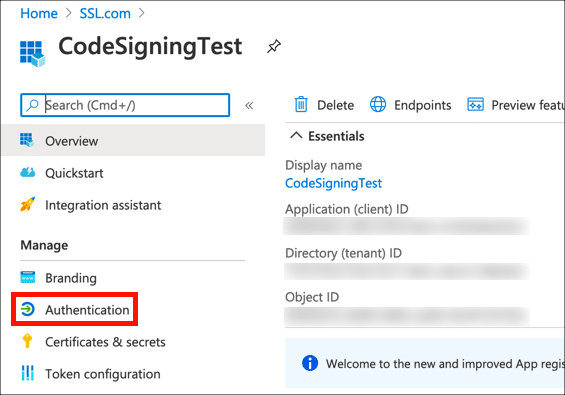

Learn more about the Markup Validator and the. It compares your HTML document to the defined syntax of HTML and reports any discrepancies. The Validator is sort of like lint for C.
#KEYVAULT VALIDATOR NOT WORKING FREE#
The cookie is set by the GDPR Cookie Consent plugin and is used to store whether or not user has consented to the use of cookies. The Markup Validator is a free tool and service that validates markup: in other words, it checks the syntax of Web documents, written in formats such as (X)HTML. The cookie is used to store the user consent for the cookies in the category "Performance". This cookie is set by GDPR Cookie Consent plugin. The number of errors of a HTML page is seen on the form of an icon. Notice that this is This token will NOT work for any resource that does not explicitly match this value, such as graph. HTML Validator is a Mozilla extension that adds HTML validation inside Firefox, Mozilla. Sometimes they would work, other times they would not. They are as follows: - aud (audience): The resource of the token. Solved keyVault Validator Thread starter DrewModder Start date Views 825 1 D. This will create a new KeyVault client that will go fetch the access token from your service principal (a.k.a your application) automatically and wire it up all up in the KeyVault client. The cookies is used to store the user consent for the cookies in the category "Necessary". Since you are using base64 encode RawURL for encoding purposes, you can check whether the following parts are included in the token request for the keyvault signature validation. Just add validation into your controller action method. Some rules could be validated only on the server side. But not all FluentValidation rules could be translated into client-side (JavaScript) validation. Notice that this is This token will NOT work for any resource that does. This is exactly how the FluentValidation documentation shows doing such a thing. They are as follows: - aud (audience): The resource of the token. The cookie is used to store the user consent for the cookies in the category "Other. Since you are using base64 encode RawURL for encoding purposes, you can check whether the following parts are included in the token request for the keyvault signature validation. The cookie is set by GDPR cookie consent to record the user consent for the cookies in the category "Functional". The test suite is passing across Windows/Ubuntu/macOs in the CI pipeline so I presume it will work on other distro's but any feedback regarding cross platform support would be appreciated as I have not personally used it outside of Windows/Ubuntu(wsl2). The cookie is used to store the user consent for the cookies in the category "Analytics". In theory any Linux or macOs system with PowerShell installed should work. These cookies ensure basic functionalities and security features of the website, anonymously. Necessary cookies are absolutely essential for the website to function properly. I need a field without required validation but with an async validation Environment What is the motivation / use case for changing the behavior?

secret list of KeyVault object types: secret, key or cert (semi-colon separated. If i give my own targetNamespace its not working.
#KEYVAULT VALIDATOR NOT WORKING CODE#
The schema code is working fine if i use the default XSD header. The expected behavior would be defining async validators in formcontrol without a required sync validator. Deployment not working - validation failed, resourcegroup is empty 123. Hi, I am using the xsd for validating XML schema. New FormControl(question.value || '', Validators.required, this.AsyncValidator(question)) Expected behavior New FormControl(question.value || '', null,this.AsyncValidator(question)) Copy this into the interactive tool or source code of the script to reference the package. So far, weve looked three different ways to get Azure Key Vault references from Azure Functions. r directive can be used in F Interactive, C scripting and. It works perfectly WITHIN the function method, but not within the triggers and bindings because both triggers and bindings directly access to the environment variables, not through the handler above. Please contact its maintainers for support. When you declare a FormControl without Validator.required and an async validator, there is an error.ĮRROR Error: Expected validator to return Promise or Observable. The NuGet Team does not provide support for this client. Support request => Please do not submit support request here, instead see Refer to my last post for setting up an Azure Key. We will use Azure.Identity name space for our Azure AD token acquisition with either a certificate or a secret and the SecretClient class to manage Azure Key Vault secret. "secretName": ""įor more information, you could refer to this template.Regression (a behavior that used to work and stopped working in a new release) In this post, I’ll talk about using a couple of new classes in the Azure SDK for. In my parameter file I have the following "resource_Env": , I am trying to retrieve secrets from a Vault within my ARM template


 0 kommentar(er)
0 kommentar(er)
